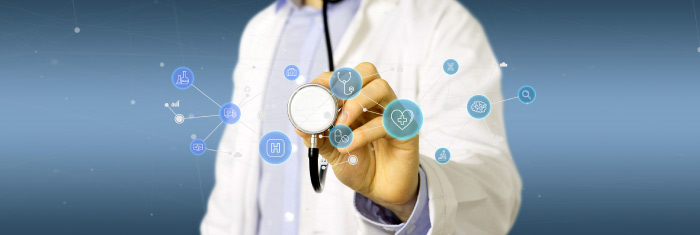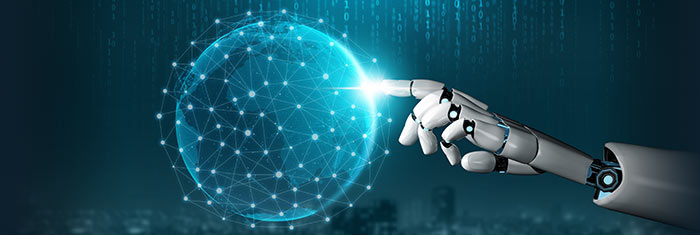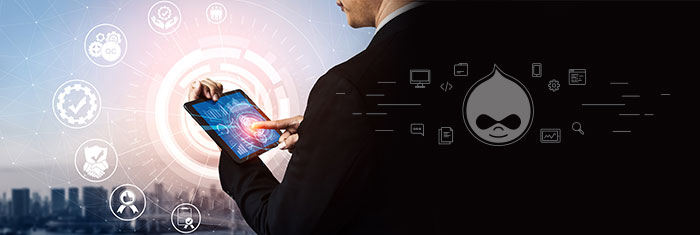
Workplace Knowledge Library: A New Address to Your Key Resources
What is Knowledge Library and why do you need one? As per a report by McKinsey, on average an employee wastes more than 9 hours a week¹ searching for crucial company information such as time off or travel policies. The Knowledge Library is one of the new features from Facebook’s Workplace which works like a simple intranet or a digital workplace. The feature enables users to create, store and access essential company resources, such as Process and Policy Documents, Benefits and Employment Guidelines, Sales Handbooks, and more.
Read More
Remote UX Design: How to do it right the first time and every time
One of the frequently asked questions about Remote UX design is, first, is it possible and will it be successful? The answer to both the parts of the question is “Yes it would!” A right mix of adjusting to the new normal and the correct attitude towards Remote UX can deliver a successful project. Remote UX sessions have many additional benefits as compared to in-person sessions, adding immense value to the maintenance of insights and ideas while solving major project challenges and ensuring seamless customer experience management.
Read More
Drupal 7 to 9: Why, When and How Should You Migrate
Drupal is celebrating 20 years of an exciting journey of continued innovation. As a pioneer in content delivery across multiple channels, after 2 decades of existence it now stands at the forefront of the Digital Experience Platform (DXP) on the web, with sturdy content management tools, APIs for multichannel publishing, and one and the only digital hub to enable and support your digital presence.
Read More
Healthcare Interoperability: Building a Meaningful and Secure Data Exchange Environment
Interoperability is not a new concept but in an era when so many complex systems are networked together we keep hearing about it often in different ways. Interoperability is the ability of computerized systems, irrespective of their make and model, to connect and communicate with one another readily. Modern economies rely on computer systems that can exchange information between applications, databases, and other computers. This makes interoperability the focal point of attention in every sector of the economy, including healthcare.
Read More
SDN/NFV is the Future of Networking
The telecommunications sector has been spearheading change for quite some time now. The change is rapid as it must deal with the growing technology environment and manage the ever-increasing customer expectations. Numerous new technologies will have a massive impact on the network and the way they provide services. Enhanced production of internet-based applications and smartphones, the 5G explosion, ever-increasing WAN requirements and the advent of chaotic traffic patterns due to M2M and IoT connectivity have been some of the most apparent disruptors.
Read More
Automation in Healthcare: The Key to Scaling Operational Efficiency
The healthcare system is infused with a myriad of paperwork and administrative hassles. Be it new patient registration, medicine prescriptions, emergency admission forms, insurance claims documentation, sensitive patient records or medical reports, paperwork is a critical component of everyday hospital workflow. These manual workflows are not only repetitive; they are also time-consuming, expensive, error prone and bring down efficiency.
Read More
Hybrid Workforce Model is the Future of Work
The hybrid workforce model is the need of the hour where business organizations and their folks find ways to work together and deliver results effortlessly. The remarkable move to be living and dealing things over the internet has transformed the enterprise landscape in irreversible ways. Many industry experts have opined that the extraordinary technology revolution or transformation is driven by the cloud, and the digitalization of business models are influencing the new normal.
Read More
Role of Network Infrastructure in the Digital World
Network infrastructure is essential to transform an organization into collaborative, knowledgeable, and importantly customer-centric. The need to eliminate waste, latency, balance resources and demand, accelerate business processes is the need of the hour. Towards this end, ACL Digital’s infrastructure services help NEMs (Network Equipment Manufactures) and OEM’s (Original Equipment Manufacturers) to transform the legacy infrastructure into programmable and converged IP based services.
Read More
Why is Hyperautomation Important to Scale Automation More Effectively?
The term “hyperautomation” first appeared in October 2019 on Gartner’s list of strategic technology trends for 2020, and again in 2021.
Read More
Addressing Public Cloud Security Challenges through Automation
Cloud security loopholes often make news one way or the other. Frequently, they are stated with imprecise explanations. The uncertainty may seem intimidating when it comes to cloud computing and securing public cloud services. But it is not so. You just need to manage cloud resources efficiently via adaptable and unified cloud security solutions. Tackling public cloud security challenges is not so difficult. All you need to do is seek the expert help of cybersecurity professionals who can untangle the complications of protecting the unexpected workloads in vigorous and faster environs.
Read More
Top DevOps Trends for 2021
The ongoing Coronavirus pandemic has been affecting millions of lives and businesses across the world. With the global economy disrupted and hugely impacted by the COVID-19 outbreak, organizations worldwide have no other choice than to embark on the path of accelerated digital transformation. DevOps has become crucial and integral to a business’s success more than ever. The unprecedented and rapid change in the business landscape has led to the technology evolving at the lightning speed, and with the emerging technology DevOps has also evolved to suit the modern business needs.
Read More
Why Migrate to Drupal Experience Platform?
Content is the foundation of every experience in the modern business landscape. A Content Management system (CMS) with a Headless, Decouple or content as a service (CaaS) architecture plays a crucial role in providing every organization with a personalized digital experience platform, starting from the brand and customer to employee experience.
Read MoreTrending Posts
-
Fostering an Experimentation Culture: The Key to Creative UX Innovation By Mohamed Vaseem
-
The Metaverse and VR’s Advancements Extend the Boundaries of Virtual Experiences By Srinivasan Subramani
-
Real-time NPC Interaction and Dialogue Systems in Video Games By Saurabh Goel



